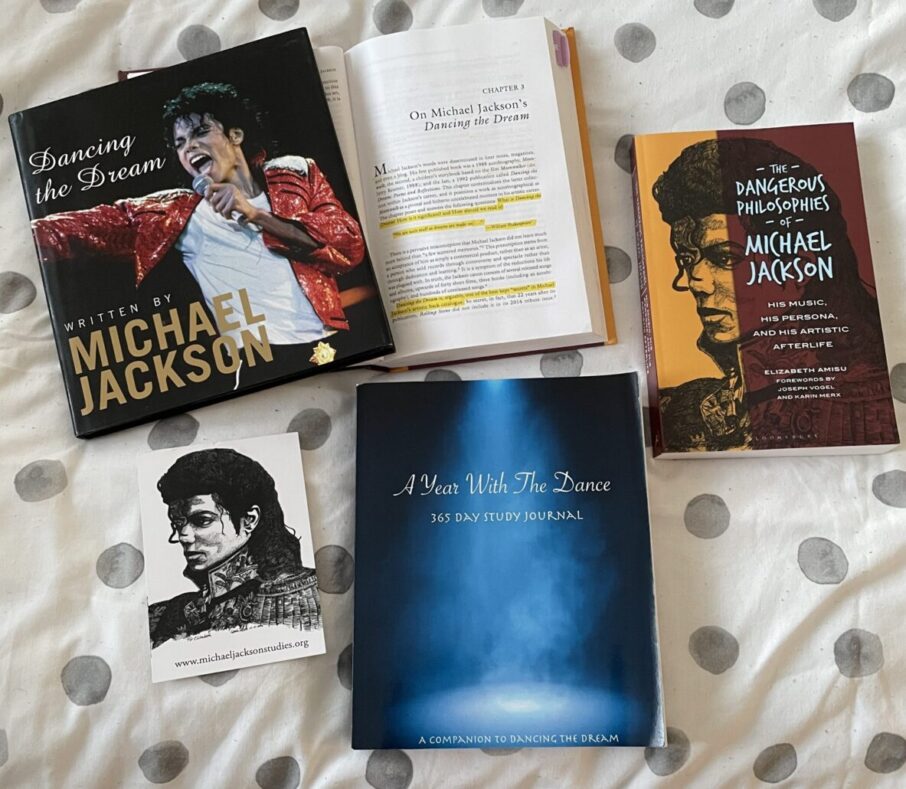
I’m currently listening to the Reading Michael Jackson podcast (Episodes 1–5), and I have to say—I’m loving the sound of the presenter’s voice and the sheer depth of her insights. If you’re a fan of Jackson’s music, writing, and artistic philosophy, this podcast is an absolute must-listen. Highly recommended for both fans and scholars alike.
Of course, being an academic at heart, I have my copy of The Dangerous Philosophies of Michael Jackson open beside me—specifically to the chapter On Michael Jackson’s ‘Dancing the Dream’, where the book is brilliantly compared to a 17th-century commonplace book. A fascinating perspective that completely reshapes the way I view Jackson’s literary work.
I’m also revisiting Siren’s A Year with the Dance, a 365-day companion to Dancing the Dream, which offers daily reflections, poetry, and meditations. I have to thank Reading Michael Jackson for reintroducing me to this stunning companion piece, and I’m genuinely looking forward to diving back into its pages, exploring Jackson’s words in a whole new light.
It’s incredible how much literary richness exists within Michael Jackson’s work, yet so much of it remains underexplored. Dancing the Dream isn’t just a book of poetry—it’s a window into Jackson’s thoughts, philosophies, and artistic musings, revealing a side of him that was often overshadowed by his public persona. Reading it now, especially alongside The Dangerous Philosophies of Michael Jackson, makes me appreciate the depth of his reflections even more. There’s something timeless about his writing, something that continues to speak across decades, beyond the music, beyond the myth.
And that’s precisely why conversations like those in this podcast are so essential. They remind us that Michael Jackson wasn’t just a performer—he was an intellectual, an artist, and a writer. The more we engage with these discussions, the more we begin to understand his work not just as entertainment but as cultural and literary artefacts that deserve serious academic attention. The comparisons to historical literature, philosophy, and even early modern writing traditions are a testament to just how layered and intentional his work really was.
So, as I continue to listen, read, and reflect, I feel a renewed sense of appreciation—not just for Michael Jackson as an artist, but for the scholars and writers who continue to explore his legacy. Every discussion, every new perspective, every deep dive into his work adds another layer of understanding to a career that remains one of the most complex and fascinating of all time. And that’s the beauty of scholarship—it keeps the conversation alive.
